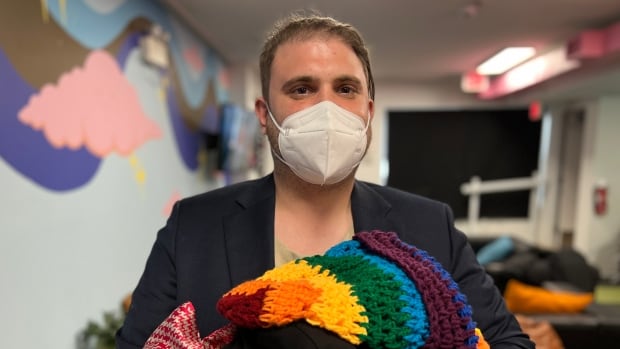
Prairie non-profit pairs free fashion, mental health support for LGBTQ community
CBC
In high school, Samuel Braemer used fashion to try to hide his sexuality.
He says that at the time, he didn't want his style to express too much. He avoided bright, bold colours and patterns.
"It wasn't really until after high school, when I came out to my family and friends and I was really on this journey of accepting myself and finding myself, that I started to express myself through fashion," said Braemer.
Now the 33-year-old from Winnipeg is helping others within the LGBTQ community find their individual style through his newly-formed non-profit organization, Transforming Style.
It's open to anyone in the community facing socio-economic barriers.
Braemer said the non-profit's process — which he calls a "style journey" — starts when a client requests a private consultation online.
From there, the team learns more about the person — who they are and how they want fashion to reflect that. The virtual consults are followed up with an in-person session to try on clothes and sometimes a second meeting to complete the wardrobe.
"We want folks to be able to be true to themselves and feel comfortable and confident in who they are," said Braemer, who previously worked as a stylist in several Canadian cities including Toronto.
"What we like to say is that we are breaking down barriers, building confidence and creating a network of support one style at a time."
The Transforming Style team of about 10 people, including beauty consultants, curates each personal collection of clothing, footwear, accessories, jewelry and handbags from items donated by the public.
WATCH| How Transforming Style uses fashion to help people within LGBTQ community:
As the work commences on the outside, there's also healing from within. The non-profit provides free mental health support to ensure a holistic approach to its work.
"We found that there are some great organizations out there that offer mental health support, but the wait times — especially given COVID — can be anywhere from six months to a year," Braemer said.
"That was just, in my mind, not acceptable because folks need that immediate support."













